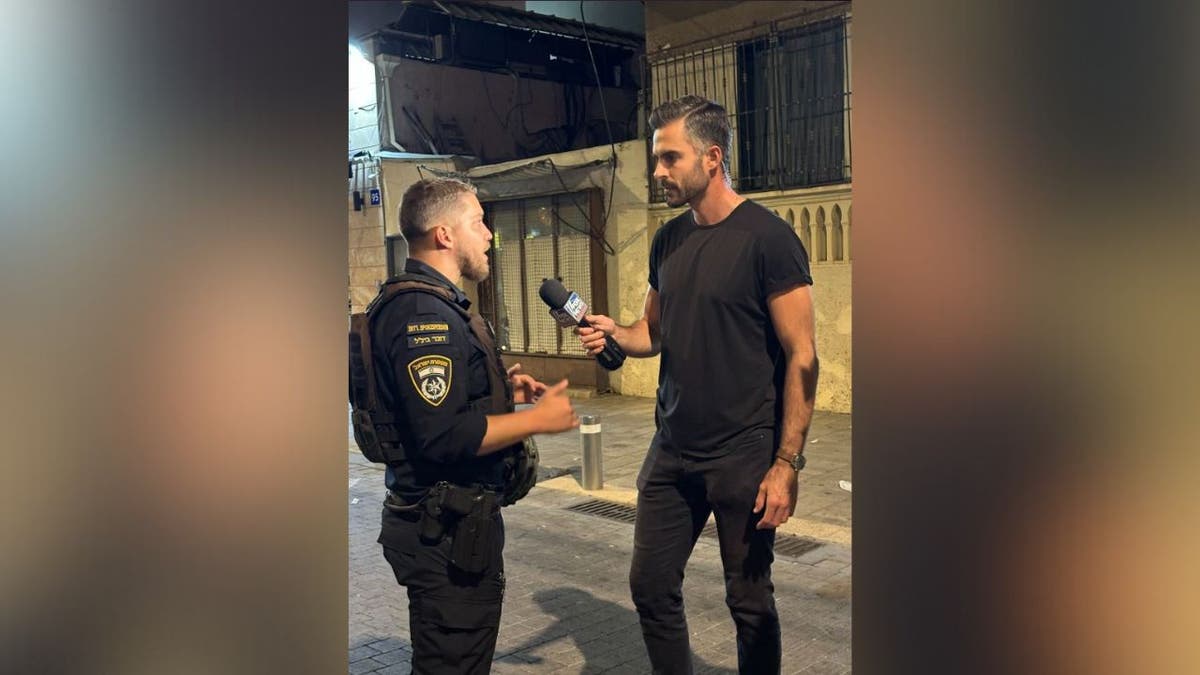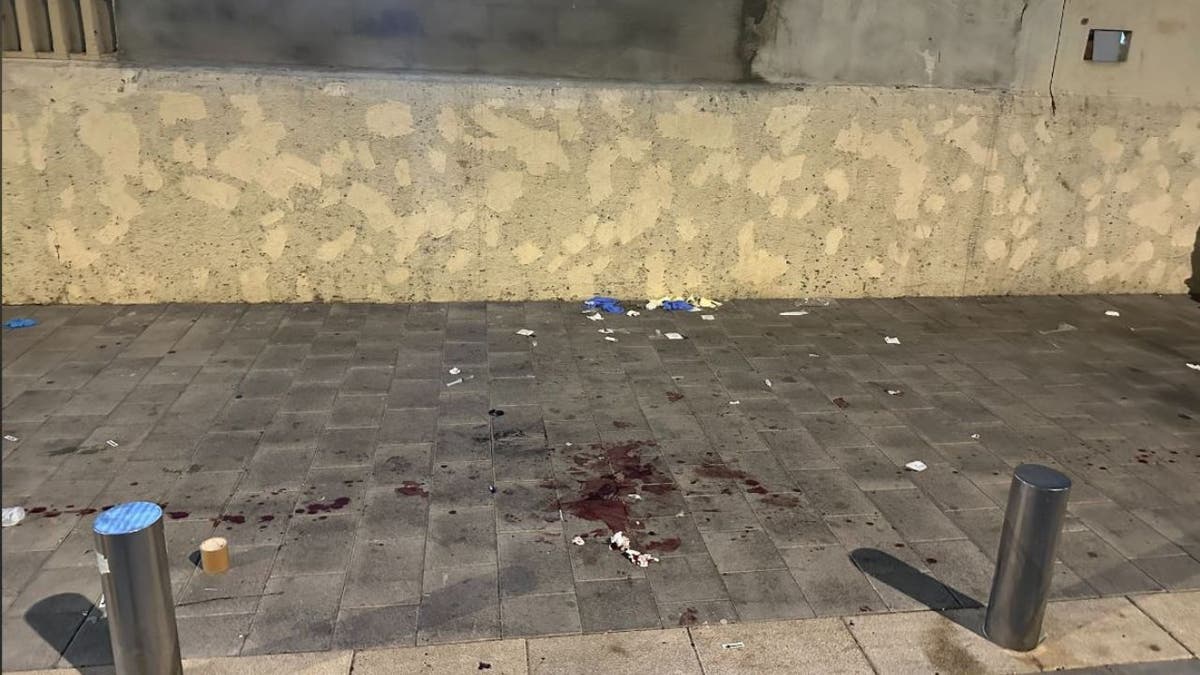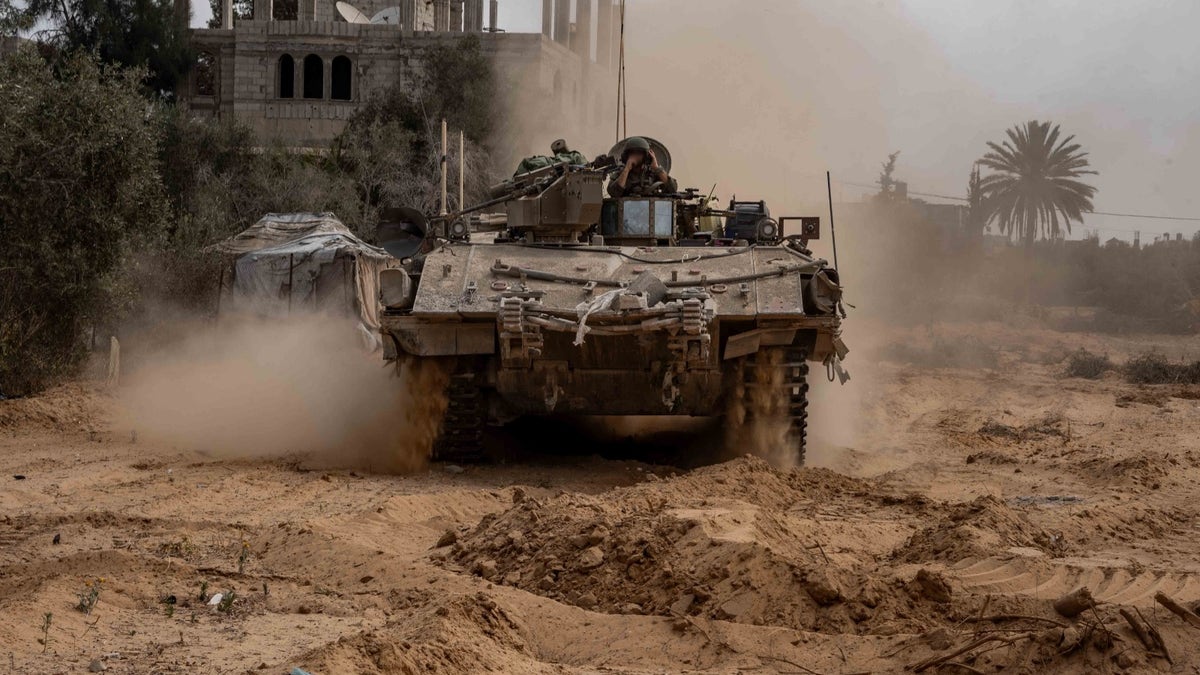Only IDF soldiers and Hamas terrorists remain in Rafah: Nate Foy
Fox News correspondent Nate Foy reports from Tel Aviv after embedding with the Israeli Defense Forces in southern Gaza on 'Fox Report.'
TEL AVIV, Israel – Sirens blare outside our hotel balcony.
An imminent ballistic missile strike from Iran looms, but the current alarm is different – more immediate, more dangerous.
It’s a terror attack in Jaffa.
The details are still emerging, but we know this much: Several people have already lost their lives.
In a rush, we load up our gear and protective equipment into our vehicle. Just as we’re pulling out of the hotel, orders from New York come through: Get back inside. They don’t want us on the road with Iran’s attack approaching.
FOUR AMERICAN HOSTAGES REMAIN IN HAMAS CAPTIVITY A YEAR AFTER OCT. 7 MASSACRE
Before my producer can even hang up, the car fills with a new sound: the blare of alarms. Iran has fired ballistic missiles – headed straight for us.
It takes about 12 minutes for a missile to travel from Iran to Israel. How far into those 12 minutes we are is anyone’s guess.
Our photographer, doubling as our driver, floors the accelerator, weaving through traffic as we race back to the hotel.
We make it back and join about two dozen others in the hotel’s shelter. Many of them are Israelis. A father plays with his two daughters, rolling on the ground, laughing. Nearby, people chat calmly, unbothered by the threat of nearly 200 ballistic missiles targeting Israel. I notice a young man standing calmly beside his girlfriend. He’s missing a leg from the knee down but stands strong and composed.
"Hamas terrorists," he tells me when I ask about his injury. "They hit us with an RPG."

Nate Foy interviews an Israeli police spokesman following a terror attack in the Tel Aviv area. (Nate Foy/Fox News)
He credits his – and others’ – composure during this attack to their faith in Israel’s air defense systems.
From the shelter, I go live on Fox News Channel, describing those around me. As Israel’s layered air defense – comprised of the Iron Dome, David’s Sling and Arrow systems – intercepts incoming threats, it becomes clear why the soldier’s confidence is well-placed.
HAMAS LAUNCHES ROCKETS FROM GAZA ONE YEAR AFTER OCT. 7 ATTACKS, WHILE IDF STRIKES TERROR TARGETS
Iran is launching the largest ballistic missile barrage in history. Amid this, a Palestinian man in the West Bank dies from falling shrapnel, but not a single additional person in Israel is seriously harmed by the missiles.
It strikes me: the calm in the shelter is born of a tragic familiarity – being fired upon has become normal here.
Terror attacks, while common, rarely reach Tel Aviv.
When we’re given the all-clear, we race to the scene of the attack in Jaffa, as originally planned.
Evidence of the brutality is everywhere along the light rail tracks: bloodstains and evidence markers hint at the horror that unfolded just before we arrived.

Graphic photo warning: Blood-stained streets where two terrorists killed 7 Israelis in the Tel Aviv area. (Nate Foy/Fox News)
"When the train stopped and opened its doors, the terrorists walked inside, began firing their automatic weapons, then stepped back out and continued their killing spree," the Israeli Police International Spokesman, Dean Elsdunne, tells me.
US ON ALERT FOR POSSIBLE ‘VIOLENT EXTREMIST ACTIVITY’ ON AMERICANS ONE YEAR AFTER OCT. 7
"I even saw an image where the terrorists stood over a civilian who had clearly already been shot, and they continued shooting him," he adds.
Seven people lost their lives in the attack.
My mind flashes back to what I witnessed 63 miles south of Tel Aviv, in the devastated city of Rafah in southern Gaza.

An Israeli armored vehicle in Rafah (IDF)
Weeks earlier, I had embedded with the IDF in the evacuated city, where soldiers exchanged gunfire with militants.
There wasn’t a single civilian in sight, but remnants of life before the war were scattered everywhere – a child’s superhero mask, clothes, household goods buried beneath the rubble from Israeli airstrikes.
CLICK HERE TO GET THE FOX NEWS APP
A once-inhabited neighborhood is now a wasteland.
These are the costs of war.
Tens of thousands have died.
Millions are displaced.
And now, as the war enters its second year, the possibility of a major direct escalation with Iran looms on the horizon.



